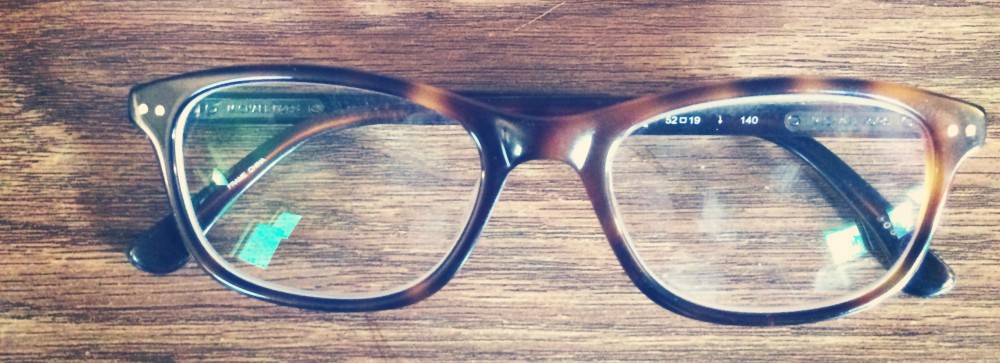Nystagmus simply means involuntary eye movement. Here’s the almighty Wikipedia article that goes into more detail about the different kinds of nystagmus. I’ll try to summarize a little more succinctly here.
Just a note, as you can already probably tell by my reference to Wikipedia, I am in no way an expert, medical or other, on this topic. I am simply someone who lives with the condition and has done some research. If you or someone you know has nystagmus, you should see a medical professional for accurate information.
There are two kinds:
Acquired nystagmus is when you acquire the condition later in life
Congenital nystagmus is when you are born with the condition (or it’s diagnosed shortly after you were born). Most people who live with nystagmus (like me) have this kind.
What does it look like?
It can be pendular (smooth movement) or jerky, horizontal or vertical, and sometimes even circular.
My particular nystagmus is pendular horizontal, so that means it’s mostly a smooth movement from side to side, though it’s quite fast.
Is there a cure?
The short answer to this is no, there is no cure.
That being said, there are a lot of current studies and research about nystagmus, its causes, and possible treatments. People can have nystagmus for a variety of reasons (albinism, genetics, certain diseases) so treatments that may work for acquired nystagmus won’t necessarily work for congenital nystagmus.
Think of it this way: if someone has a cough, trying to get rid of it will depend on why they have a cough. If it’s a common cold, maybe they take cold medicine. However, if they have tuberculosis, cold medicine won’t make their cough go away.
Null Point
Most people with nystagmus have a null point, or a position in which they hold there gaze that reduces the movement. This position varies from person to person. Many times, rather than the eye movement itself, it’s an awkward null point that will cause a lot of difficulties in the classroom or social problems. Though there is no current cure for nystagmus, there is a surgery that can slightly adjust the null point to a more manageable position.
My null point is a gaze slightly to the right, which means many times in order to reduce my eye movement, I’ll turn my head slightly to the left to look at something in front of me. I’m lucky, because most people wouldn’t even know that I’m using a null point.
Other Resources
To learn more about nystagmus, there are a couple of great organizations:
The Nystagmus Network
A national, self help organization based in the UK established in 1984 to:
Raise awareness of Nystagmus
Provide information and support to people with nystagmus
Promote research into nystagmus
The American Nystagmus Network
A nonprofit organization founded in 1999 to serve the needs and interests of those affected by nystagmus. It is an outgrowth of the Nystagmus E-Mail List introduced on the Internet two years earlier to provide information on a wide variety of topics pertaining to nystagmus.
Both of these organizations have great websites where you can learn a lot more about nystagmus and find specific support. There are a lot of other good resources too, but these will get you started. I’ll try to post a more extensive list later.
Well, that pretty much gives you a broad idea of what nystagmus is. If you have any questions, always feel free to ask!
